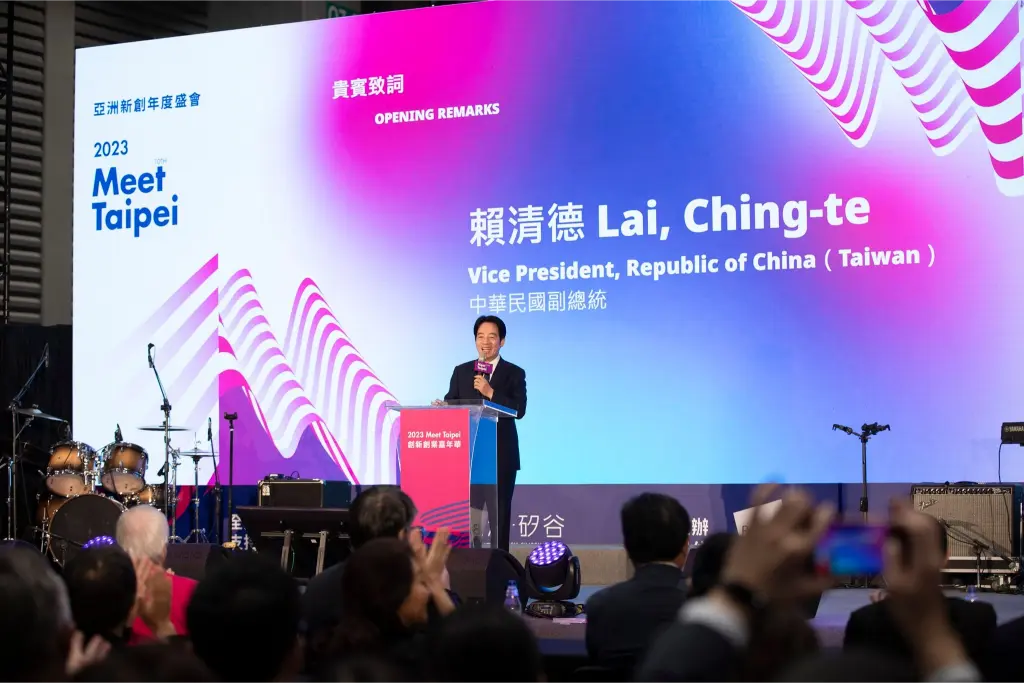On Saturday, Taiwan’s Democratic Progressive Party (DPP) achieved a historic third consecutive presidential victory, despite China’s warnings that their re-election could lead to conflict. Lai Ching-te declared victory that evening, and both of his opposition rivals conceded defeat. In response, China promptly reiterated its stance that “Taiwan is part of China.”
Hsiao Bi-khim, Lai’s running mate, who previously served as Taiwan’s top envoy to the United States, was elected as Vice President. The final vote count revealed that Lai received slightly over 40% of the total votes, according to Taiwan’s Central Election Commission (CEC).
This spirited election campaign, reflecting Taiwan’s robust democratic credentials, revolved around various livelihood issues and the challenging matter of dealing with its powerful and assertive one-party state neighbor, China, led by Xi Jinping.
The election outcome signifies the voters’ support for the DPP’s perspective that Taiwan is a de facto sovereign nation. They believe Taiwan should strengthen its defenses against China’s threats and deepen its relations with fellow democratic countries, even if it means risking economic consequences or military pressure from Beijing.
Furthermore, this election result serves as a rebuke to the eight years of increasingly aggressive tactics towards Taiwan under Xi’s leadership. Xi has insisted that Taiwan’s eventual “reunification” with the mainland is a “historical inevitability.”
A spokesperson for China’s Ministry of Foreign Affairs reiterated China’s position that “regardless of any changes in Taiwan, the fundamental fact remains that there is only one China in the world, and Taiwan is a part of China.”
The election focused on the key issues of peace, social stability, and prosperity in Taiwan, which Beijing claims as its own and threatens to retake by force if necessary. The DPP’s message of self-determination, social justice, and rejection of China’s threats resonated with voters, making it the first time a single party has held Taiwan’s presidency for three consecutive terms since 1996.
Lai expressed gratitude to the Taiwanese electorate for their commitment to democracy and pledged to continue working with democracies worldwide. Taiwan’s leaders reject China’s sovereignty claims, although they have offered to engage in dialogue, which Beijing consistently refuses. The more China-friendly Nationalist party (Kuomintang or KMT) candidate, Hou Yu-ih, who also pledged to restart talks with China, lost in the election.
Ko Wen-je of TPP attracted support from young voters seeking an alternative to the DPP and KMT. Ko emphasized the importance of maintaining Taiwan’s democracy and freedom while advocating for dialogue.
Despite the election results, China’s Taiwan Affairs Office dismissed them as not representing the island’s mainstream opinion, insisting on the inevitability of reunification with Taiwan. The United States, bound by laws to support Taiwan’s defense, pledged support for the incoming government.
The opposition Kuomintang (KMT) party candidate, Hou Yu-ih, secured 33.49% of the votes, while the Taiwan People’s Party (TPP) candidate, Ko Wen-je, received just 26.45%. Over 14 million people participated in the election, resulting in a voter turnout of just over 71%.
The United States has sought to refrain from interfering in the election.
Hours ahead of the polls opening, Washington had warned “it would be unacceptable” for “any” country to interfere in the election.
However, the U.S. has long been seen by China as interfering in its affairs and several U.S. administrations have made it clear they would come to Taiwan’s defense if China attacked.
At the same time, the Biden administration has expressed its willingness to recognize “One China”, a policy that views Taiwan as part of China, but a separate entity.
“We do not support independence…” U.S. President Joe Biden said, when asked for reaction to Saturday’s elections.
The U.S. is Taiwan’s most important international backer and arms supplier despite the lack of formal diplomatic ties with the island.
U.S. Secretary of State Antony Blinken congratulated Lai Ching-te on his victory and said the U.S. “is committed to maintaining cross-strait peace and stability, and the peaceful resolution of differences, free from coercion and pressure. “He said the U.S. looks forward to working with Lai and leaders of all parties in Taiwan to advance their “longstanding unofficial relationship, consistent with the U.S. One China policy.”
From the American perspective, Taiwan is part of China, but if China initiates a conflict and attempt to invade Taiwan militarily, it seems the U.S. will defend Taiwan and assist it in repelling such an attack.
As war drums beat louder in the region, with China and North Korea making threats, it may be only a matter of time before the One China policy and America’s military backing are put to the test.
